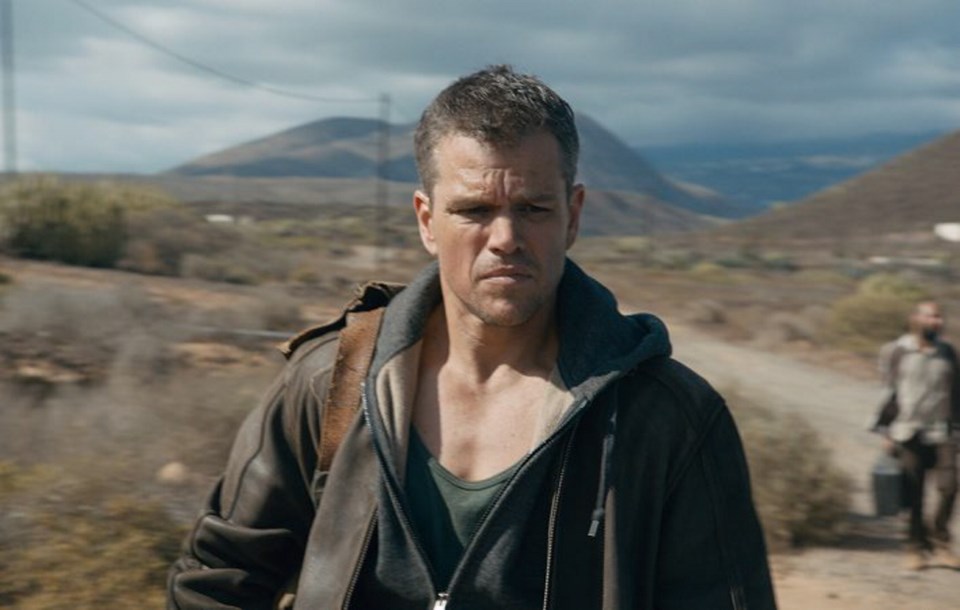LAS VEGAS — On a trip to Los Angeles about 18 months ago, the London-based filmmaker Paul Greengrass sat down to lunch with Matt Damon and editor Christopher Rouse.
The latter two had come with a stealth mission. Greengrass had long been unwilling to make his third Jason Bourne movie and for a time was even burned up about a spinoff done without him. But with the director wandering in a kind of decade-long exile making globalization cautionary tales, they thought it was time for him, in Bourne-ian terms, “to come in” and direct a new movie about Robert Ludlum’s amnesiac assassin.
“I was skeptical there was one to be done, I was skeptical I wanted to do it and I was skeptical it would hold up with the others,” recalled Greengrass, 60. “But Matt said, ‘We’re really lucky to have an audience that loves this character.’ Chris said, ‘The world has really changed since [The Bourne Ultimatum in) 2007. I thought, ‘Maybe I’ve been too negative to an old friend.’ ”
Greengrass told this story in Las Vegas, where his new movie Jason Bourne — starring and produced by Damon; edited by and co-written with Rouse — would later that day make its debut.
The figurative distance covered by the director is even greater. When the new Bourne arrives in theatres Friday, it will land the one-time documentarian back in a tentpole fishbowl he’d long swum away from — while excitingly but potentially troublingly upping the political-realism ante above most Hollywood blockbusters. Jason Bourne expands the possibilities of — and tests the appetite for — serious issues in escapist cinema.
And it wasn’t even supposed to exist — not after Universal upset Greengrass by making 2012’s The Bourne Legacy with rival director Tony Gilroy.
“I had,” Damon said, “given up hope that we would get here.”
With its trademark handheld cameras and edits faster than a croupier’s fingers, Jason Bourne vibrates with the momentum fans know well. From its early set piece at an austerity riot in Athens to its fiery third-act car chase shot practically on the Vegas Strip, Bourne keeps the plot turns coming.
There’s the ex-agent’s new discoveries about his past, a fresh chapter with his comrade-in-roguery Nicky Parsons (Julia Stiles), slippery dealings with a murkily motivated cyber-analyst (Alicia Vikander) and a fraught relationship between new CIA director Robert Dewey (Tommy Lee Jones) and Aaron Kalloor (Riz Ahmed), a Silicon Valley mogul whose user database holds the key to Dewey’s intelligence ambitions.
And yes, Bourne is again on the run from shadowy bosses as he tries to learn what brought him here. But you assumed all that. More novel are the social issues: The film’s Athens-to-Vegas arc, for instance, which by going from a flailing economy to capitalist excess puts a spotlight on economic disenfranchisement. Or the privacy debate — when Kalloor and Dewey tensely hash out whether a tech company should give the government a backdoor, it so closely echoes the recent Apple-FBI controversy over a terrorist’s iPhone you’d think Greengrass shot it last month. [He didn’t.]
“We looked at the differences from Bourne Ultimatum and it was shocking,” Damon said. “We thought, ‘If Jason Bourne was on the run, why not run him through today’s landscape?’”
Also, because Bourne now remembers what he’s done, moral questions enter. Does he want to use his lethal skills to serve his country or does he refrain out of guilt — patriotism or conscience?
Crucially, every enemy and good guy is firmly within the U.S. government. This is a far cry from nearly all other 21st-century thrillers and even from past Bourne movies (though Ultimatum gets close). No longer is the story about the U.S. versus its enemies. It’s about the U.S. versus itself.
“In a sense all these films are anchored in identity, because Jason Bourne is trying to find out who he is. But with this one I think we’re also asking how we want to define ourselves as a country,” Rouse said.
Greengrass — who wears Harry Potter glasses, shoulder-length white hair and a mien that in a certain light can make him look like Jay Leno — dedicated much of four years to The Bourne Supremacy, sequel to Doug Liman’s The Bourne Identity, and then Ultimatum.
He imported his style of current-events research (he is known for being moved to direct films by seemingly unrelated writings; Paul Mason’s global-uprising study Why It’s Kicking Off Everywhere and a Wired article about hacker recruitment in Vegas were the impetus for this one).
But his first two Bourne movies were, Greengrass admits, “painful in their processes.” Because his spontaneity often led to key moments being omitted, he and a crew would be forced to return to various cities for reshoots, sometimes more than once.
Deciding in 2008 — after Bourne scored three Oscars and global success — that he didn’t want more stress, Greengrass walked away. He went off to make smaller-scale films. Damon, close with Greengrass, also stayed away.
But Universal, short on franchises and not wanting the rights to revert to the Ludlum estate, needed a movie. Soon Gilroy — who had written all three Bourne films but whose Ultimatum script Greengrass had almost entirely rewritten — was on board for a spinoff with Jeremy Renner, The Bourne Legacy.
Legacy performed modestly, but well enough to keep the franchise alive. Donna Langley, chairman of Universal, said that she was proud of the movie and believed it had a beneficial effect on the public. She also hoped, soon after, that Greengrass might come back. And he did.
The issues in Bourne are timely. Combine that with a documentary-style shoot and you’re left with a movie of far more realism than most summer action films.



